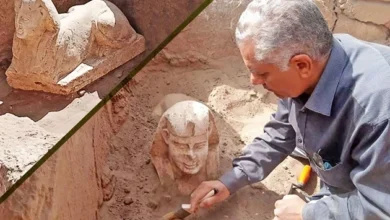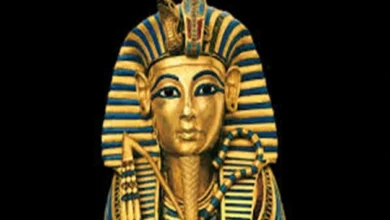Jabel Maragha: how a 2000-year-old historical treasure was destroyed because of gold

An ancient archaeological site, Jabal Maragha, is located in the Eastern Sahara Desert in the country of Sudan. When archaeologists and museum experts from Sudan’s Department of Antiquities visited the site, they were shocked by what they saw: two pieces of heavy machinery and five people working at the construction site. Gold seekers motivated by greed were responsible for the destruction of a portion of the mysterious kingdom of Kush (Meroitic kingdom ), which was one of the primary competitors of ancient Egypt.
More than two thousand years of history have been lost in this location due to treasure hunters’ greedy quest of the yellow metal. It was constructed during the Meroitic period, which began in the fourth century B.C. This location once served as a frontier village of modest size. Gold miners supported the roof of the building where they ate and rested by using the massive stones that had been used in the construction of the ancient structures.
All of the terrifying sights that the experts observed were topped off by a massive pit that was sixteen meters deep and nearly twenty meters wide. Treasure hunters who put profit before everything else eventually go completely insane. They are only concerned with unearthing the valuable metal and do not care about anything else.
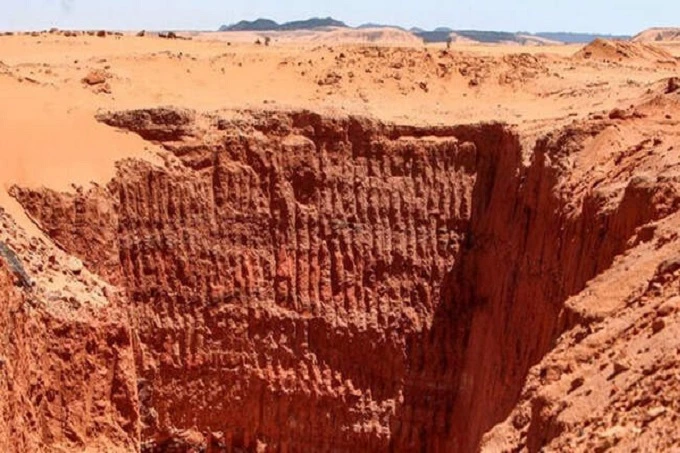
Archaeologist Habab Idriss Ahmed says, “It’s just crazy! They even used heavy machinery to speed up the process!” The expert suggests that the pests probably found traces of yellow metal in the sand. This is pyrite, which, together with sandstone, makes up the layers of the local landscape.
Jabel Maragha, a part of Kush’s kingdom during the Meroitic period, suffered severe damage in the 21st century (1070 B.C. – 350 A.D.). A significant amount was ruthlessly destroyed and looted. The location has also been eradicated at this point. It is highly unlikely that researchers will ever discover the real story behind the location’s history. In any case, Kush is a bit of a grey area. Because this kingdom is typically associated with Ancient Egypt, very little information is available about it.
The political structure and social structure of the ancient kingdom of Kush, which existed as a separate ancient state, have not gained as much attention from historians as Ancient Egypt’s political and social structures. The Egyptian social and political models had a considerable and significant impact on the world. Despite this, there are still a lot of unanswered questions and gray areas in the history of Kush, particularly when it comes to the earlier periods of the state’s existence.
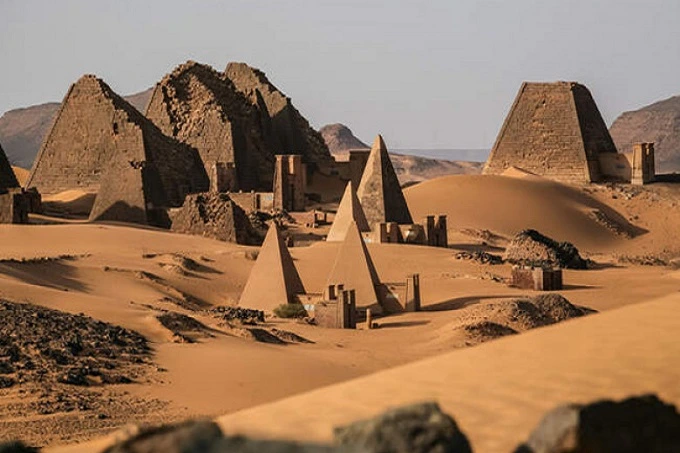
The construction of pyramids and the presence of certain gods, such as Ammon and Isis, are two aspects that are shared by Kush and the Land of the Pharaohs. After the New Kingdom of Egypt fell to pieces around 1070 B.C., this kingdom is believed to have declared its independence around this same time.
Even though Jabel Maragha was not obliterated in its entirety, almost nothing can be found there today, according to the experts. They state that “what is particularly offensive is that careless workers stacked ancient cylindrical stones on top of each other to prop up the roof of their canteen,” which is a criticism of the workers’ actions. If the police hadn’t escorted the archaeologists upon their arrival at the site, no one can say for certain how this whole saga would have come to a close. The people digging for gold illegally were apprehended and brought to the police station. In the end, however, they were let go without any charges being filed against them. It is abundantly obvious from the circumstances that some form of graft is at play here.
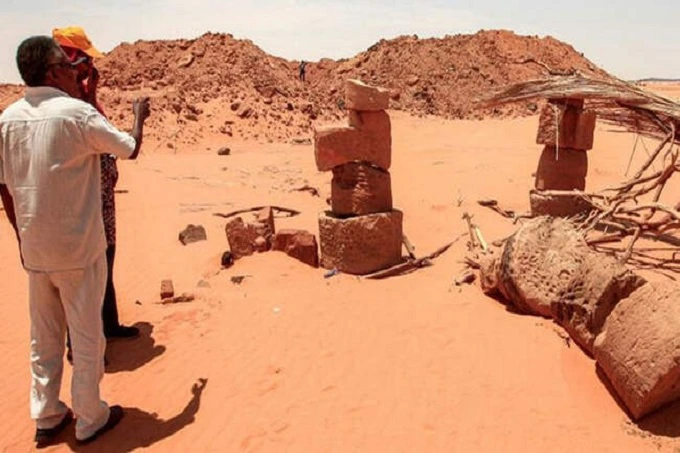
Mining is a major industry in Sudan, ranking third in Africa in gold production. The extraction of gold for commercial purposes brought in over $1.2 billion for the state in just the previous year, as indicated by official statistics. Shadow mining brings in an even greater amount. It is widely held that those who already have a great deal of wealth were behind the callous destruction of Jebel Maragha, or at the very least, those who aspire to have a great deal of wealth. According to the specialists we spoke with, incidents of this nature are not uncommon in their country. In their pursuit of profits, precious metal hunters will vandalize anything and everything, including cemeteries and temples. Young people and those who are desperately looking for work are encouraged by local authorities to get involved in these dirty dealings.
There have been so many instances of the malicious destruction of Sudan’s ancient history that keeping track of them is impossible. Looters have been cruel in their destruction and looting of the pyramids that were constructed during the time of the pharaohs in Egypt. According to Hatem al-Nour, the director of Antiquities and Museums, “Out of a thousand more or less famous sites in Sudan, at least a hundred have been destroyed or damaged under similar circumstances.” He continues by saying, “There is one police officer for every thirty precincts…and he does not have any suitable means of communication or transportation.” The fact that all of these people are ignorant of the history of the ancient world in Sudan and do not appreciate the significance of the country’s priceless heritage is another very significant aspect of the situation that has arisen here. There is reason to believe that the following generation’s education in the years to come will be of a higher calibre. As a result, they will not be so ruthlessly wielding shovels to pursue valuable metals.

